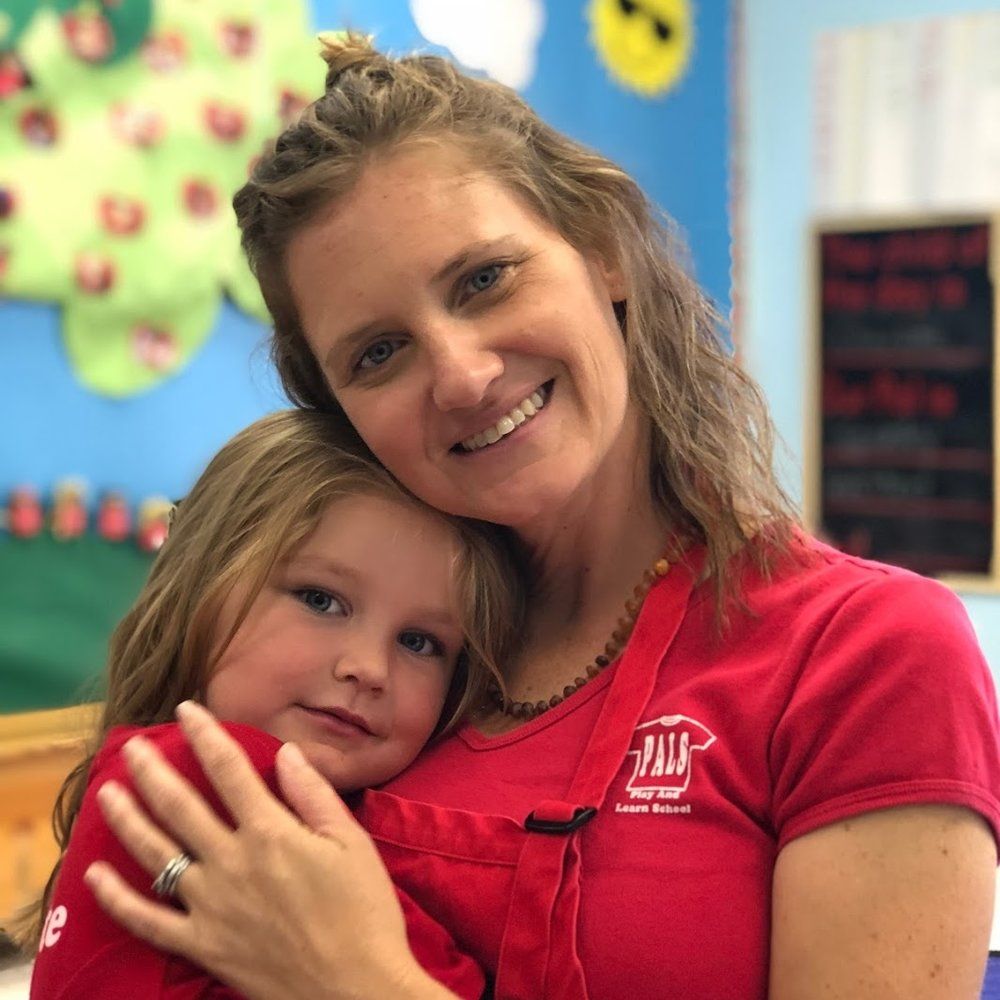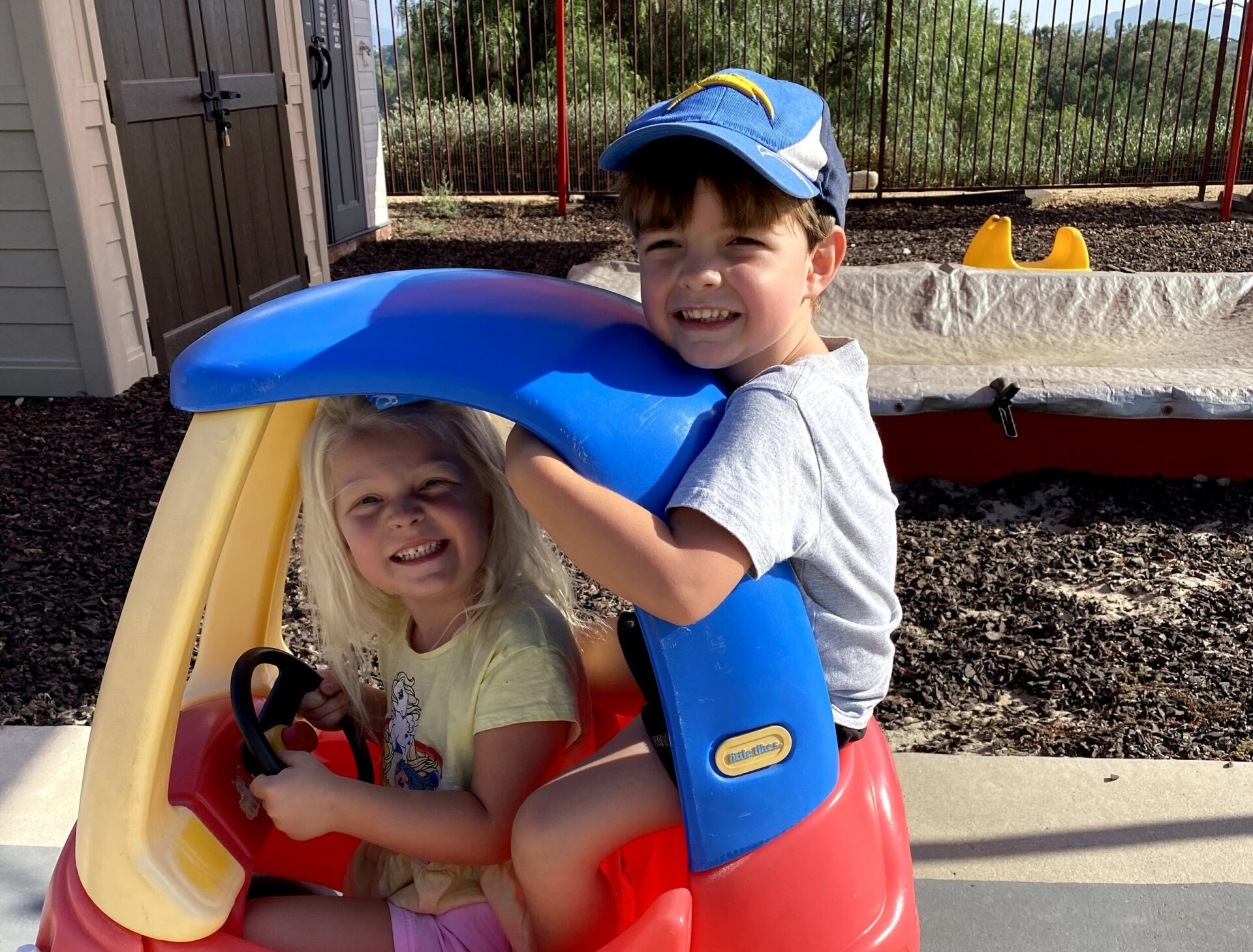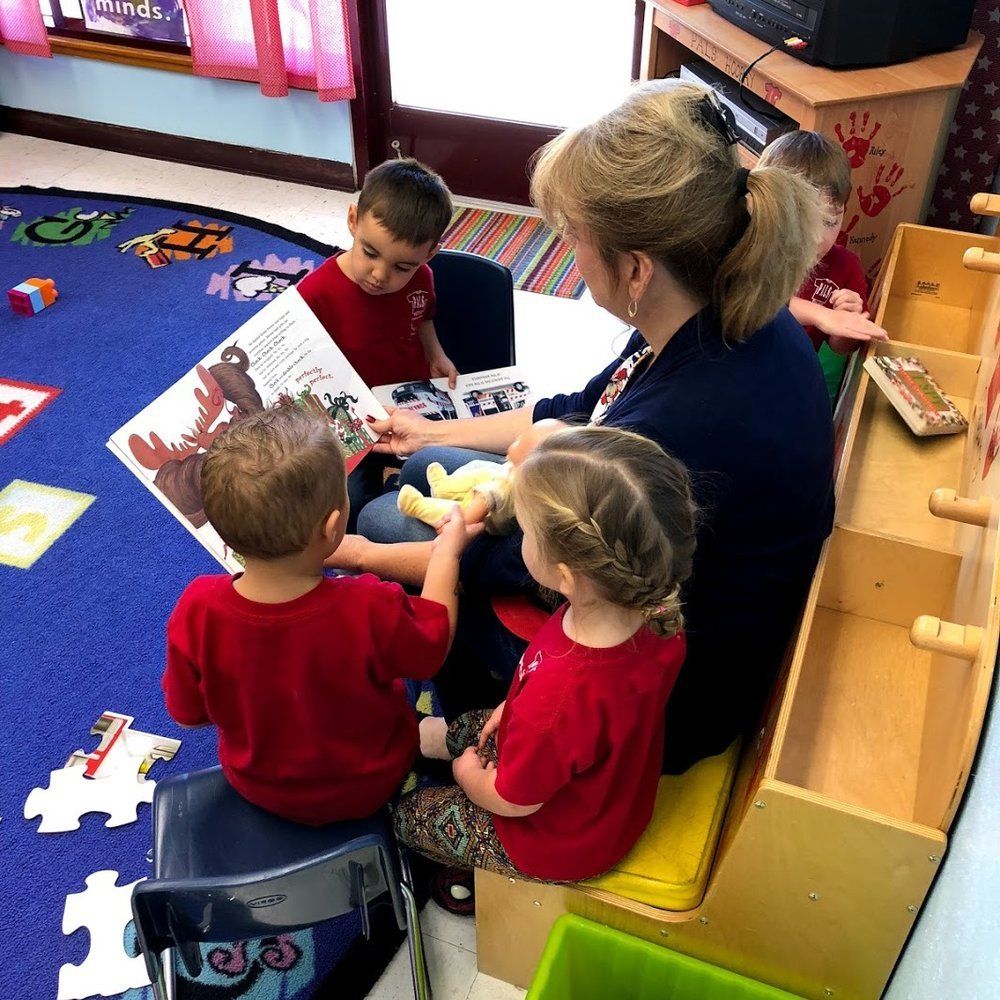PALS Blog
Let us share our passion for preschool with you!

Storytelling is an ancient art form that transcends mere entertainment and is a fundamental tool for language development in children. In Temecula, where the landscape is as rich in culture as natural beauty, storytelling takes on a special significance. This blog post will explore how storytelling can boost language skills in young learners and highlight some local literature that can bring the voices of Temecula into your storytelling sessions. The Power of Storytelling in Language Development Storytelling is much more than just reading a book aloud. The interactive activity involves sharing experiences, emotions, and ideas. Here are some ways storytelling aids in language development: Vocabulary Building: Regular exposure to stories helps children learn new words in context, enhancing their understanding and memory of new vocabulary. Listening Skills: Listening to stories develops a child’s ability to concentrate and understand spoken language, which is crucial for academic success. Narrative Skills: Through storytelling, children learn the structure of stories, which is important for their ability to understand and organize information. Imagination and Creativity: Storytelling stimulates the imagination, encouraging children to visualize scenes and think creatively, linked to better problem-solving skills later in life. Tips for Enhancing Language Skills Through Storytelling Be Interactive: Encourage questions and discussions about the story. Ask predictive questions like, “What do you think will happen next?” Use Voices and Props: Different voices for different characters and visual aids or props can make the story more engaging and memorable. Connect Stories to Real Life: Relate the story's events to experiences in your child’s life. This not only makes the story more relatable but also helps deepen understanding. Repeat Favorites: Repeated reading of beloved stories can reinforce language structures and vocabulary. Conclusion Storytelling is a versatile educational tool that enhances language development and connects children with their cultural roots and local environment. By integrating these local stories into your reading routine, you’re not just passing on language skills—you’re imbuing your child with a sense of place and history uniquely Temeculan. Let these stories from our area inspire you and your children to keep the storytelling tradition alive, making every reading session a journey through the rich tapestry of language and culture.

In the early years of childhood, every beat in a song and every movement in a dance can serve as a critical tool for development. Music and dance are not merely forms of artistic expression but are essential to cognitive, emotional, social, and physical growth in young children. With its vibrant community and rich cultural offerings, Temecula provides numerous opportunities for its youngest residents to engage in these artistic endeavors. Let's explore how these activities benefit early development and highlight local opportunities for children to learn and grow. Cognitive Benefits: Enhancing Brain Power Through Beats and Rhythms Music and dance are more than fun activities—they catalyze brain development. Engaging with music helps children in language acquisition and reading skills by improving their ability to decipher sounds and words. Dance, meanwhile, enhances spatial awareness and improves mathematical skills. Both disciplines encourage memory training through repeated actions and lyrics. Emotional and Social Development: Expressing and Communicating Without Words Music and dance allow children to express their emotions and communicate feelings when they might not have the words to do so. Participating in group music and dance sessions also teaches children valuable social skills such as taking turns, cooperating, respecting others, and developing empathy. Physical Development: Grooving to the Beat of Health Dance naturally supports children's physical development by improving their range of motion, coordination, strength, and endurance. Music, particularly when children play instruments, can enhance fine motor skills by manipulating keys, strings, and percussion instruments. Cultural Appreciation: Dancing and Singing Through the World’s Window Both music and dance are reflections of culture. Exposure to different music styles and dance forms can foster an appreciation for diversity and a broader worldview in young learners. Tips for Incorporating Music and Dance at Home Make It a Routine: Incorporate music and dance into your daily routines. Have a dance party while cleaning up toys or sing songs during bath time. Use Technology Wisely: Numerous apps and online platforms have age-appropriate music and movement activities. Be Playful: Use instruments made from household items, or create a makeshift dance floor in your living room. The key is to make music and dance a joyful and regular part of life. Conclusion Music and dance are not just arts to be enjoyed but are essential components of early childhood development. They provide a foundation for lifelong skills joyfully and expansively. By taking advantage of the local resources in Temecula, parents can provide their children with enriching experiences that promote growth across multiple domains of development. So, let the music play and dance like nobody’s watching—your children’s development depends on it!

Temecula, nestled in the heart of Southern California's wine country, is not only famous for its vineyards but also for its vibrant natural landscapes. These settings offer a fantastic playground for our youngest learners to connect with nature. Preschoolers are naturally curious; the local parks and nature reserves provide perfect venues for this curiosity to flourish. Here’s how you can turn a simple day out into a profound learning experience for your little ones. Discover the Riches of Santa Margarita River Trail Activity: Nature Scavenger Hunt Begin your outdoor adventure at the Santa Margarita River Trail . This trail is a treasure trove of native wildlife and plants. Prepare a scavenger hunt list with pictures of common plants, insects, and birds that can be found along the trail. Equip your preschooler with a magnifying glass to spot tiny insects and textured leaves, turning a simple walk into an exciting quest. Explore the Serenity of Temecula Creek Trail Activity: Sensory Walk The Temecula Creek Trail offers a quieter but equally enriching environment where children can engage their senses. Organize a sensory walk where children can stop at various points to listen to the sounds of the creek, touch different types of rocks, observe the light filtering through the trees, and smell the fresh earth after rain. These sensory inputs are crucial for cognitive development and help build a deep appreciation for natural environments. Learn at the Harveston Lake Park Activity: Lakeside Learning Harveston Lake Park is a picturesque setting ideal for younger children with its calm waters and ample picnic areas. Bring along some simple tools like nets for catching (and releasing) small fish or aquatic insects. Discuss the life cycles of ducks and other water birds that might be spotted around the lake. This hands-on learning helps preschoolers tangibly understand ecosystems. Discovering History Hands-On at the Temecula Valley Museum's Children's Touch History Exhibit Activity: Interactive Time Travel For a change of pace from the natural landscapes, the Temecula Valley Museum offers a unique educational treasure right in the heart of Old Town Temecula—the Children's Touch History Exhibit. This exhibit is specially designed to engage young minds with the rich history of the region through interactive, hands-on experiences. Engaging in Vail Lake’s Expansive Views Activity: Landscape Art Take inspiration from the beautiful vistas at Vail Lake to introduce your child to landscape art. Bring along some paper and child-safe paint or crayons. Let your child create their version of the landscape, which nurtures creativity and encourages them to observe natural features closely. Tips for a Successful Nature Day Preparation is Key: Always check the weather, dress appropriately, and pack plenty of water and snacks. Safety First: Keep a close eye on your children, especially near water or on more challenging trails. Encourage Questions: Nature walks provide endless opportunities for inquiry-based learning. Answer their questions patiently and explore the answers together. Leave No Trace: Teach your children the importance of preserving natural beauty by not leaving any trash behind and not picking plants or flowers. Conclusion Temecula’s natural settings are not just playgrounds but classrooms rich with live lessons on ecology, biology, and environmental stewardship. By engaging in these simple yet enriching activities, you help lay down the foundation for a lifetime of environmental awareness and scientific curiosity in your preschoolers. So, lace up your walking shoes, pack your adventure bag, and get ready to explore the great outdoors with your little explorer by your side!

When you step into our cooperative preschool, you might notice something distinctly heartwarming – a community humming with the collaborative spirit of families. Here, every storytime, every block tower, and every art project is a partnership. This isn’t just a preschool; it’s a shared experience, where parent participation isn’t just welcomed, it's the very heart of our educational approach. But why is this deep level of involvement so crucial in the preschool years? A Tapestry of Talents Parent participation brings a rich tapestry of talents and experiences into the classroom. Each family has unique cultural backgrounds, professional skills, and personal interests, which when shared, enrich the learning environment immeasurably. When a parent leads a hands-on science experiment or shares a story from their culture during circle time, they're opening young minds to the diverse world around them. The Power of Modeling Children learn not just from what they are told, but from what they see and experience. When they witness their parents actively engaged in their education, they receive a powerful message about the value of learning. Parents serve as role models, showing their children that education is a lifelong journey. This modeling lays the foundation for a positive attitude towards learning that can last a lifetime. Strengthening Bonds The cooperative preschool environment extends the notion of family to include the entire school community. Parents working alongside teachers and interacting with other children creates a close-knit community where every child feels seen and supported. This social support system nurtures children's emotional development, helping them feel secure and confident as they explore and learn. Communication and Collaboration Active parent participation fosters open communication and collaboration between families and educators. Parents gain insight into the preschool's methods and curriculum, allowing for a consistent educational approach between home and school. This seamless connection helps reinforce learning, as children thrive on repetition and the comfort of routine. Tailored Education No one understands a child quite like their family. Parent involvement means educators have better insight into each child's unique needs and can tailor their teaching accordingly. This two-way dialogue ensures that the preschool can support each child's individual learning style, interests, and developmental pace. Building a Village It takes a village to raise a child, and in a cooperative preschool, that adage comes to life. Through fundraising events, classroom assistance, or simply sharing a skill, parents contribute to creating a vibrant and resourceful educational village. This collective effort not only supports the school but also fosters a sense of belonging and community responsibility in young children. Empowerment and Ownership Parents who participate in their child's preschool are empowered and have a sense of ownership in the educational process. They're not passive observers; they're active contributors to the shaping of the preschool experience. This empowerment leads to a more fulfilling experience for the family as a whole and drives the success of the preschool program. Conclusion At PALS, parent participation is not just a nice-to-have; it's essential to our philosophy and to the enriched educational experience we provide. This involvement is a gift of time, love, and expertise that supports not only the children but the entire community. It's a powerful affirmation that when it comes to raising and educating our children, we're all in this together, beating with one heart, right here at the center of our school.

Choosing the right preschool for your child is an important decision. The right preschool can set your child on the path to success in school and in life. But with so many options to choose from, how do you know which preschool is right for your child? In this article, we'll explore some tips for choosing the right preschool for your child. Consider Your Child's Needs: The first step in choosing the right preschool for your child is to consider your child's needs. Think about your child's personality, interests, and learning style. Do they thrive in a structured environment, or do they need more freedom to explore and learn at their own pace? Do they have any special needs or requirements that need to be accommodated? Look for a Quality Program: It's important to look for a quality preschool program. Look for a school that is licensed and accredited, and has experienced and qualified teachers. Check to see if the program has a curriculum that is age-appropriate and meets the developmental needs of your child. Visit the Preschool: Visiting the preschool is an essential step in choosing the right one for your child. Schedule a tour of the preschool and take the opportunity to meet with the teachers and staff. Observe the classroom environment, the quality of the materials and toys, and the overall atmosphere of the preschool. Visit our Open House page to see if PALS has any open days scheduled. Consider the Location: Consider the location of the preschool. Is it close to your home or workplace? Is it easily accessible and in a safe neighborhood? Consider the commuting time and how it will fit into your daily routine. Note that PALS is a cooperative preschool, requiring time and dedication from parents and families every week. Talk to Other Parents: Talking to other parents can be a great way to learn more about the preschools in your area. Ask friends, neighbors, or co-workers for recommendations. You can also reach out to online parenting communities or social media groups to ask for advice and recommendations. PALS has been a part of Temecula for decades and we are well-known to parents of all ages. Ask around! Trust Your Gut: Finally, trust your gut instinct when choosing a preschool for your child. If something doesn't feel right or you have concerns, listen to your intuition. It's important to choose a preschool that you feel comfortable with and that aligns with your family's values and goals. In conclusion, choosing the right preschool for your child requires careful consideration and research. Take the time to consider your child's needs, look for a quality program, visit the preschool, consider the location, talk to other parents, and trust your gut instinct. With these tips, you'll be able to find a preschool that is the right fit for your child and family.

We’re coming back from Spring Break and entering the last couple of months before the 2022-2023 school year comes to a close. This is a beautiful time of year at P.A.L.S. for many reasons. The students are very comfortable with one another and with the school routine. They are challenging themselves to bigger and more advanced skills such as cutting with scissors, writing their names, learning Zoophonics, being SO creative, and becoming braver and more imaginative on the playground! It is also a time to watch the world around us begin to bloom and grow. The planter boxes are being tilled and sowed. The live caterpillars will arrive soon so that we can watch their amazing transformation into butterflies! And there’s excitement in the air for the upcoming field trip to the local strawberry farm. May will bring us joys from our annual Talent Show, Mother’s Day Tea Parties, Water Days, and Graduation. It’s certainly a great time to be a pal. Spring has sprung and we couldn’t be happier!

Outdoor play is an important part of preschool education. Preschoolers benefit from being outside in many ways, including physical development, social-emotional development, and cognitive development. In this article, we'll explore the role of outdoor play in preschool education. Promotes Physical Development: Outdoor play is essential for promoting physical development in preschoolers. When children play outside, they have more space to run, jump, and climb. This helps to develop their gross motor skills and coordination. Outdoor play also promotes active play and helps to prevent childhood obesity. Enhances Social-Emotional Development: Outdoor play also enhances social-emotional development in preschoolers. When children play outside, they have the opportunity to interact with their peers in a natural setting. They learn to share, take turns, and negotiate with each other. This helps to develop their social skills and emotional intelligence. Stimulates Cognitive Development: Outdoor play also stimulates cognitive development in preschoolers. When children play outside, they have the opportunity to explore and discover new things in their environment. They can investigate nature, observe changes in the weather, and discover patterns and relationships. This helps to develop their curiosity and critical thinking skills. Supports Creativity and Imagination: Outdoor play supports creativity and imagination in preschoolers. When children play outside, they have access to natural materials such as sticks, leaves, and rocks. They can use these materials to create their own games and stories, and engage in imaginative play. This helps to develop their creativity and imagination. Provides Opportunities for Risk-Taking: Outdoor play provides opportunities for risk-taking in preschoolers. When children play outside, they are exposed to different challenges and risks. They may need to climb a tree, balance on a log, or cross a stream. These challenges help children to develop their self-confidence and risk-taking skills in a safe and controlled environment. Outdoor play is a vital part of preschool education. It provides children with opportunities to develop physically, socially, emotionally, cognitively, and creatively. Preschools that incorporate outdoor play into their curriculum provide children with a well-rounded education that promotes holistic development. By providing children with access to nature and outdoor play, we are setting them up for a lifetime of learning, growth, and exploration .

Preschool is a crucial period in a child's development. It is during this time that children learn essential social, emotional, and cognitive skills that will prepare them for success in school and beyond. While some parents may see preschool as an optional choice, research has shown that it is a vital component of a child's education. In this article, we'll discuss why preschool is so important and the benefits it provides. Socialization: One of the most important benefits of preschool is socialization. Preschool provides children with the opportunity to interact with other children their age and learn how to form relationships, share, take turns, and cooperate. Children who attend preschool tend to be better adjusted and more confident in social situations. Academic Preparation: Preschool is also an essential time for academic preparation. Children who attend preschool are exposed to early literacy and math skills, including letter recognition, counting, and basic problem-solving. Preschool teachers help children develop their language and communication skills, which are critical for future academic success. Development of Fine Motor Skills: Preschool also helps children develop their fine motor skills, such as holding a pencil, using scissors, and buttoning buttons. These skills are essential for performing everyday tasks and are foundational for future academic success. Emotional Development: Preschool also plays a crucial role in a child's emotional development. Children learn to manage their emotions and develop self-control, which are essential skills for success in school and in life. Preschool teachers help children develop empathy, problem-solving skills, and positive self-esteem. Diversity and Inclusion: Finally, preschool is an excellent opportunity for children to learn about diversity and inclusion. Preschool classrooms are often diverse, with children from different cultural, ethnic, and socioeconomic backgrounds. This exposure helps children develop an understanding and appreciation of different cultures and perspectives, which are essential skills for success in our globalized world. In conclusion, preschool is a crucial time in a child's development. It provides children with the opportunity to develop social, emotional, and cognitive skills that are essential for success in school and in life. While preschool may seem like an optional choice, research has shown that it is a vital component of a child's education. By enrolling their children in preschool, parents are giving them the tools they need to succeed.



